Severe international crimes still go unpunished in Africa as victims cry for justice to be served upon their communities and families. Then, the ICJ Kenya claims for Eastern Africa journalists to shift the narrative towards a victim centred approach – By Diane Uwimana
“Media are an important site of debate and source of information on international criminal justice. It is also important to recognize that media are an important theatre in the contest for public support for court processes, the interests pursuing justice for the victims, and those defending the accused”, said Stella Ndiragu, the Program Manager of ICJ Kenya, in her opening remarks during the 2013 Media Forum held at Kinshasa from 28 to 31 August.
She indicated that victims expect from the justice system not only an outcome but also the substance of the process itself which includes, making their voice heard; participating in the handling of the case that concerns them; being treated with respect and fairness; obtaining information on the progress and outcome of the case concerning them and obtaining economic and emotional redress. In order for victims to participate meaningfully, it takes the collective efforts of International Criminal Court (ICC) offices such as the victims and witness units of the ICC and the Office of the Public Counsel for Victims, State parties, civil society, and the media fraternity among other institutions.
Georges Kapiamba, the President of the Congolese Association for Access to Justice (CAAJ) mentioned that the media forum objectives were to demystify the role of the media in fostering justice and enhancing visibility for victims, strengthen the relationship between the media and civil society and enhance knowledge of the participants on international criminal justice issues.
“Most African countries have similar problems”
The situation is similar in most African countries. In the Democratic Republic of Congo, war crimes of conscripting, enlisting and using children to actively participate in hostilities were committed in Ituri region in 2002-2003.Crimes against humanity were also committed there during the attack of the village of Bogoro. In Kenya, it is estimated that about 1,133 Kenyans were killed and around 600,000 displaced people from their homes after the 2007-2008 post-election violence. In Uganda, the war between the National Army and the Lord Resistance Army has had terrible impacts on survivors. Many suffer from depression, anxiety and posttraumatic stress disorder.
Sudan, Central Africa Republic (CAR) and Ivory Coast are not an exception. In Sudan, attacks against the Haskanita AU peacekeeping base put in danger all the civilians that were under their care. In Ivory Coast, Laurent Gbagbo was charged with war crimes and crimes against humanity committed after the November 2010 Ivorian election. In CAR, Jean Pierre Bemba was charged with similar crimes and a massive rape in the country from 26 October 2002 to15 March 2003.
According to Paul Madudi, responsible of the ICC sensitization in DRC, currently, the ICC has 8 situations under investigation and 18 cases in relation to 25 persons, 12 individuals are concerned about arrest warrants and 8 preliminary examinations in 4 different continents. The rise to prominence of the ICC is a reflection of the global community’s commitment to combatting impunity for the most serious human rights’ violations and atrocities. The cases before the ICC are a testament that victims of atrocities exist, which usually leads to loss of lives and livelihood.
“What is about the International Court system?
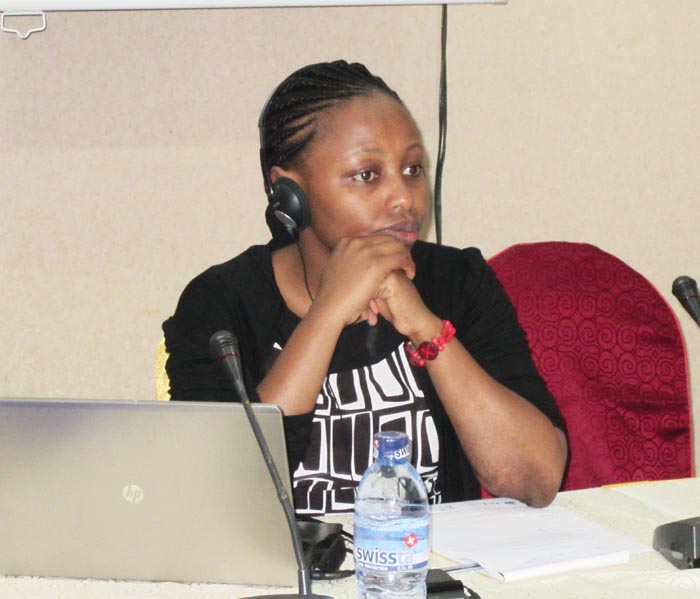
Stella Ndiragu:” Media are an important site of debate and source of information on international criminal justice” ©Iwacu
The International Court of the African Continent is the most important block of State parties for the ICC, considering its large membership.
According to Georges Kegoro, a Kenyan Consultant, the relationship between the ICC and the African Continent was initially smooth: “African State parties even referred cases to the court themselves”.
“The source of the friction between the ICC and African States was the referral by the SC of the Sudan situation to the ICC, which led to the indictment of Omar Al Bashir,” points out Kegoro.
Thereafter, the entry of the Kenyan case at the ICC has compounded the original problem. Kenya and Sudan have formed a troika united by the threat by the ICC, using African Union’ for advocacy against this latter. Until the Kenya/ Sudan situations are resolved, the relationship with the ICC is unlikely to normalize.
Kegoro clarified that during “the 15th Session of the AU summit held at Kampala from 25to 27 July 2010, the summit reiterated its previous decision that AU member states should not cooperate with the ICC in the arrest and surrender of President Omar Hassan Al-Bashir of Sudan. The summit also delayed the opening of an ICC liaison office in Addis, censured the ICC Prosecutor, and urged African States not to forget their obligations to the AU when considering cooperation with the court”.
Why are victims silent?
Impunity and lack of accountability for international crimes hamper the enforcement of international criminal law and the delivery of justice to victims.
Kwamchetsi Makokha, a Journalist and Consultant from Kenya, enumerated the reason why victims are silent : “Entrenched power and interests, and journalists/ media taking sides, media culture and practice that privileges power over victimhood, commercial and community interests that militate against inclusion – exclusivist media reaffirms dominant power, low confidence in justice processes to deliver outcomes for the common good, high politicization of justice discourses, ‘False’ dichotomy between peace and justice,”.
According to him, poor balance of power in terms of media access and use of victims tend to be hidden. It is, however, worth noting that reporting on international criminal trials is today highly variable, dependent largely on individual journalists’ abilities. Reporters covering trials face several challenges which include: a dynamic environment, complexity of the subject matter as well as the historical and political background of each situation and more importantly, limited access to factual information.
ICJ Kenya usually holds media regional fora to enhance the understanding of the concept of international criminal justice and to deliberate on the role of media. It is working to promote accountability in Kenya, Uganda, Tanzania, Burundi, Rwanda, DRC and Sudan. For bridging the gaps, the ICJ Kenya has launched the Africa’s information web portal international criminal justice for Journalists for Justice. “This website will talk about the ICC and journalists should share their information via this website”, declared Rosemary Tollo, the Program Manager of the website. The link is www.jfjjsutice .net or finds it on the Facebook “journalists for justice” and twitter: @JFJ justice.

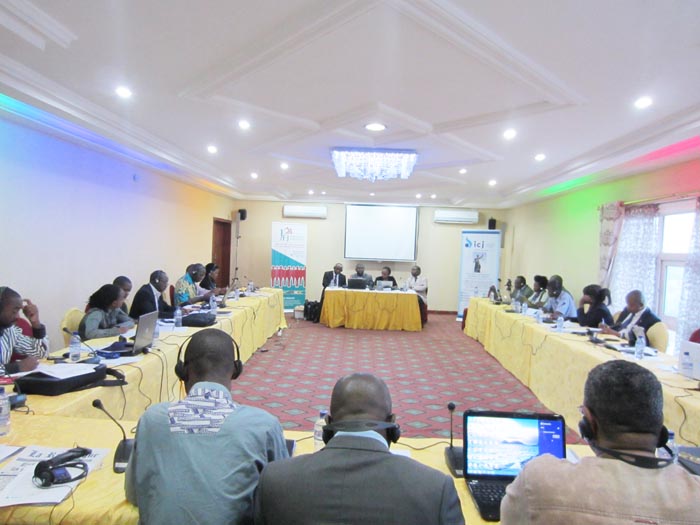
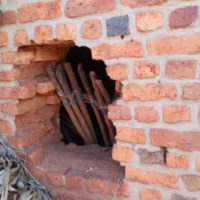
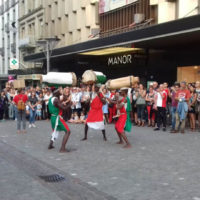

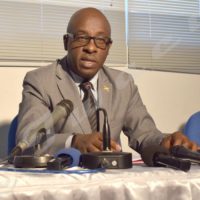
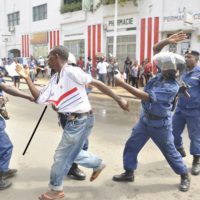













 IWACU Open Data
IWACU Open Data

